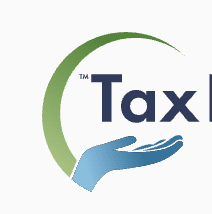
Tax errors can trigger IRS audits, costly tax penalties, or unexpected—and expensive—legal consequences. While the process may seem daunting, understanding common mistakes is your best defense against costly errors.
We'll walk you through the seven most common tax errors to help you file with confidence. And, if past tax mistakes have already left you struggling, our best tax relief services can connect you with the expert help you need.
Key Insights on Common Tax Errors
- Some tax errors are common, and being aware of them is important.
- Reviewing your taxes and understanding tax rules and regulations can help you avoid tax mistakes.
- Consider getting expert tax help if you’re concerned about filing accurately.

7 Common Tax Errors to Look Out For
1. Failing to Report All Income
One of the most common errors is failing to report all your income. This is especially true for people with side gigs, freelance income, interest income, or investment gains.
If you don’t report all your income, you could receive a notice from the IRS and be subject to penalties. To avoid this pitfall, keep all your tax documents together, and don’t file your taxes too early.
2. Claiming Incorrect Deductions or Credits
Another issue is misunderstanding eligibility for deductions and credits and then claiming them. Common deductions and credits include the child tax credit, education credits, and home office deductions. Claiming these incorrectly could result in penalties or a lower refund. Review the IRS website for information on deductions and credits.
3. Math Errors
If you file your own taxes, you’ll also want to watch out for math errors. Incorrect calculations are a common problem on paper returns and could cause delays in processing your return or adjustments to taxes owed. Double-check your math before filing to avoid this issue.
4. Filing Under the Wrong Status
Another common tax error is choosing the wrong status; for example, mistakenly filing as “single” instead of “head of household.” You could end up overpaying your taxes or missing out on certain tax benefits if your filing status is incorrect.
5. Missing Deadlines
Missed deadlines are another major tax pitfall. Generally, the annual tax filing deadline is mid-April, but you’ll also need to be mindful of quarterly deadlines if you pay estimated taxes. People with side gigs or freelance may be required to pay estimated quarterly taxes. Missing tax deadlines can result in late fees and interest on unpaid taxes.
6. Failure to Keep Proper Records
The IRS requires that you keep proper records, including invoices, receipts, and other proof of deductions. Failing to do so could be detrimental if you’re audited, as you won’t have a paper trail to prove you were eligible for certain tax breaks. Ensure you keep your previous returns and all supporting documents as long as the IRS recommends based on your tax situation.
7. Overlooking Foreign Income and Accounts
If you have foreign income or accounts, you must disclose that income on your taxes or face expensive penalties. As a US taxpayer, you may need to file a Report of Foreign Bank and Financial Accounts (FBAR) or Foreign Account Tax Compliance Act (FATCA) form with your taxes. Here’s when these forms apply:
FBAR: You must file if you have over $10,000 in a foreign bank account at any time during a given year.
FATCA if you live abroad: You’ll need to file if you have over $300,000 ($600,000 if married filing jointly) in foreign assets anytime in a given year or $200,000 ($400,000 if married filing jointly) in assets on the final day of the year.
FATCA if you live in the US: You’ll need to file if you have over $50,000 ($100,000 if married filing jointly) in foreign assets anytime in a given year or $75,000 ($150,000 if married filing jointly) in assets on the final day of the year.
How to Avoid These Common Tax Mistakes
Now that you’re aware of the common mistakes, here’s how to avoid making them:
Get expert help: Work with a tax preparer or use reputable tax software, such as TurboTax or TaxAct.
Review your returns: Double-check your return for errors before submitting.
Stay organized: Keep all receipts, W-2s, 1099s, and other tax documentation.
Stay informed: Consult the IRS website for tax updates and resources.
Get an extension: Consider filing a tax extension with the IRS if needed.
What Are Some Consequences of Tax Errors?
If you file an inaccurate return, you could face several consequences. The most common is an IRS tax penalty, which includes two accuracy-related penalties for underpayment. Each penalty requires you to pay a percentage of the amount you’ve underpaid, and interest will accrue on the amount owed until it is paid in full.
20% penalty for negligence or disregard of tax rules: This applies if you fail to maintain proper records for credits or deductions or otherwise ignore IRS regulations.
20% penalty for substantial understatement of income:
For individuals: The understatement must exceed the greater of 10% of the tax required to be shown on the return OR $5,000.
For corporations: The understatement must exceed the lesser of 10% of the tax required to be shown (or $10,000,000) OR $10,000.
You may also be selected for an IRS audit if there’s a problem with your returns. If this happens, the IRS could review your past six years’ worth of tax returns.
Additionally, you could be subject to a significant tax bill if the IRS determines you’ve underpaid. If you’re unable to pay, the IRS could take legal action, including garnishing your wages or seizing your bank accounts or property.
If the IRS informs you of an issue with your current or past taxes, it’s crucial to respond to their notice promptly. Taking swift action can help you avoid hefty interest charges or additional penalties.
Conclusion
Things like income underreporting and math errors are common tax mistakes, and understanding these issues can help you avoid them. Review your tax returns for mistakes, stay organized and informed, and get an extension if you need more time to file.
If you’re anxious about filing your taxes, consider consulting with a CPA or tax relief service providers. They can offer assistance and peace of mind regarding your taxes.







